Thanksgiving is just a month away, and you know what that means: Dinner table arguments with your extended family. What topic will it be this year? Trump? The economy? Maybe the COVID vaccine? So many contentious issues to choose from!
Indeed, ideological polarization has swept the nation—but how did this happen, and what can we do to get along better with one another? Fortunately, the nine excellent books below all offer unique and enlightening answers to these timely questions.
Download the Next Big Idea App for “Book Bite” summaries of hundreds of new nonfiction books like these.
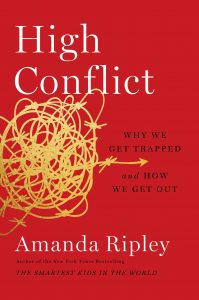
High Conflict: Why We Get Trapped and How We Get Out
By Amanda Ripley
When we are baffled by the insanity of the “other side”—in our politics, at work, or at home—it’s because we aren’t seeing how the conflict itself has taken over. In this timely read, an award-winning journalist investigates how good people get captured by “high conflict”—and how they break free. Listen to our Book Bite summary, read by author Amanda Ripley, in the Next Big Idea App
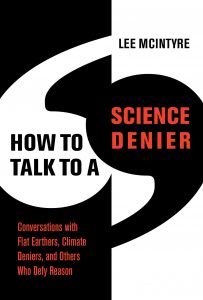
How to Talk to a Science Denier: Conversations with Flat Earthers, Climate Deniers, and Others Who Defy Reason
By Lee McIntyre
A philosopher of science offers tools and techniques for communicating the truth and values of science, emphasizing that the most important way to reach science deniers is to talk to them calmly and respectfully—to put ourselves out there, and meet them face to face. Listen to our Book Bite summary, read by author Lee McIntyre, in the Next Big Idea App
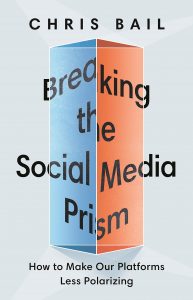
Breaking the Social Media Prism: How to Make Our Platforms Less Polarizing
By Chris Bail
Providing data-driven recommendations for strengthening our social media connections, Breaking the Social Media Prism shows how to combat online polarization without deleting our accounts. Listen to our Book Bite summary, read by author Chris Bail, in the Next Big Idea App
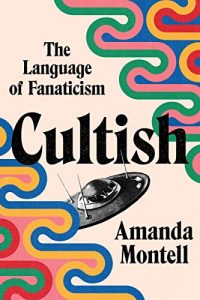
Cultish: The Language of Fanaticism
By Amanda Montell
The author of the widely praised Wordslut analyzes the social science of cult influence: how cultish groups from Jonestown and Scientology to SoulCycle and social media gurus use language as the ultimate form of power. Listen to our Book Bite summary, read by author Amanda Montell, in the Next Big Idea App

Grandstanding: The Use and Abuse of Moral Talk
By Justin Tosi and Brandon Warmke
Using the analytic tools of psychology and moral philosophy, two rising star philosophers explain what drives us to grandstand online, and what we stand to lose by taking it too far. Most importantly, they show how we can re-build a public square worth participating in. Listen to our Book Bite summary, read by authors Justin Tosi and Brandon Warmke, in the Next Big Idea App
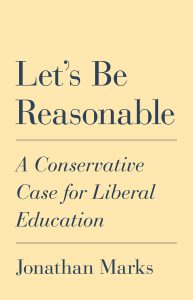
Let’s Be Reasonable: A Conservative Case for Liberal Education
By Jonathan Marks
More than just a campus battlefield guide, Let’s Be Reasonable recovers what is truly liberal about liberal education―the ability to reason for oneself and with others―and shows why the liberally educated person considers reason to be more than just a tool for scoring political points. Listen to our Book Bite summary, read by author Jonathan Marks, in the Next Big Idea App
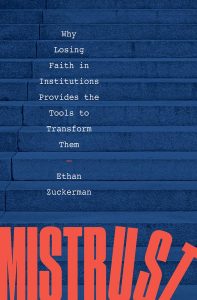
Mistrust: Why Losing Faith in Institutions Provides the Tools to Transform Them
By Ethan Zuckerman
Drawing on work by political scientists, legal theorists, and activists in the streets, Mistrust offers a lens for understanding civic engagement that focuses on efficacy, the power of seeing the change you make in the world. Listen to our Book Bite summary, read by author Ethan Zuckerman, in the Next Big Idea App
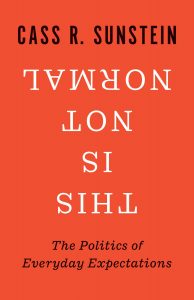
This Is Not Normal: The Politics of Everyday Expectations
By Cass Sunstein
Exploring Nazism, #MeToo, the work of Alexander Hamilton and James Madison, constitutional amendments, pandemics, and the influence of Ayn Rand, a renowned Harvard professor reveals how norms change, and ultimately determine the shape of society and government around the world. Listen to our Book Bite summary, read by author Cass Sunstein, in the Next Big Idea App
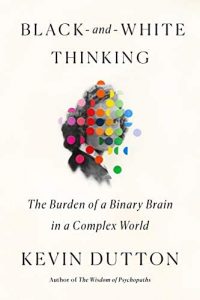
Black-and-White Thinking: The Burden of a Binary Brain in a Complex World
By Kevin Dutton
Using the latest advances in psychology, neuroscience, and evolutionary biology, an acclaimed psychologist shows how we can optimize our tendency to categorize, and fine-tune our minds to avoid the pitfalls of too little, and too much, complexity. Listen to our Book Bite summary, read by author Kevin Dutton, in the Next Big Idea App
To enjoy Book Bites from anywhere, download the Next Big Idea app today:






























